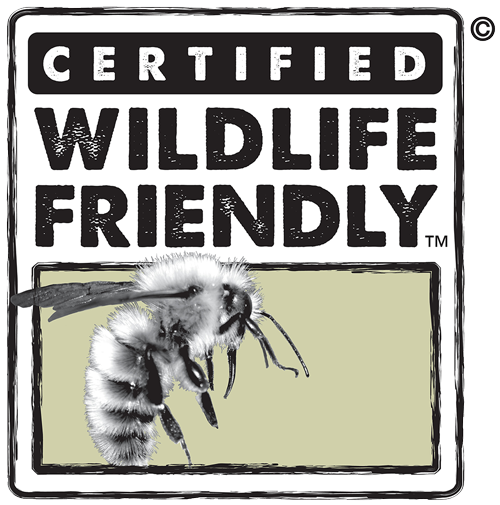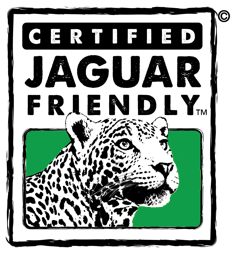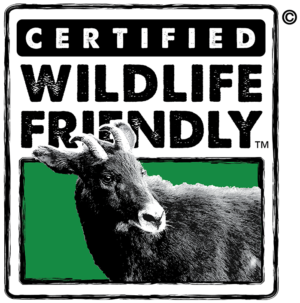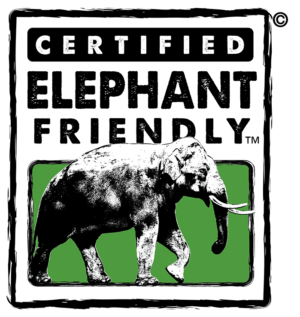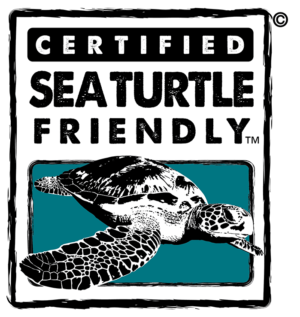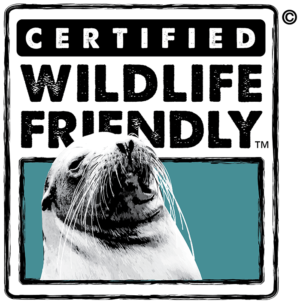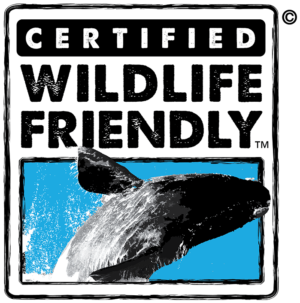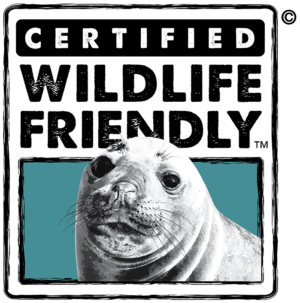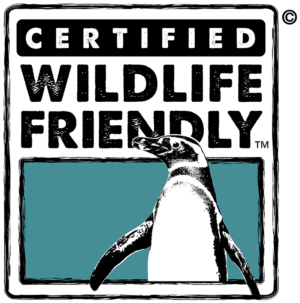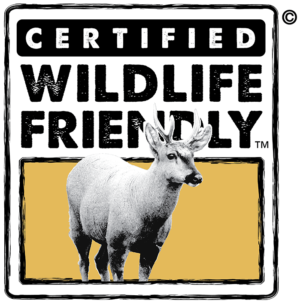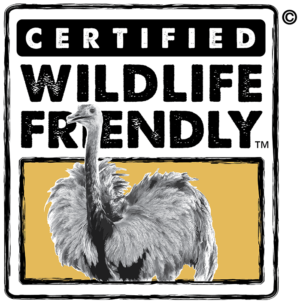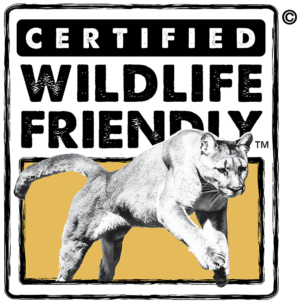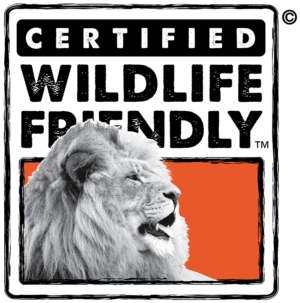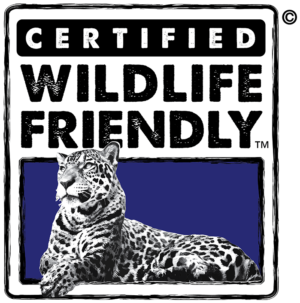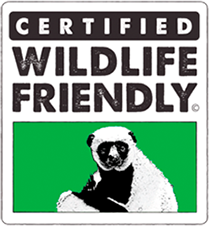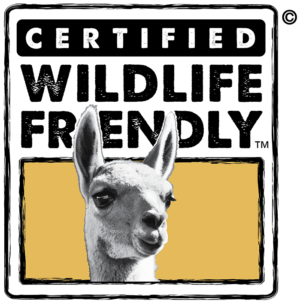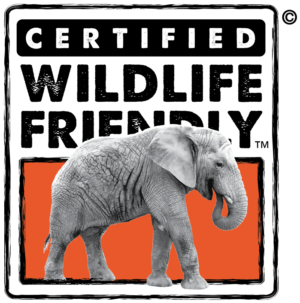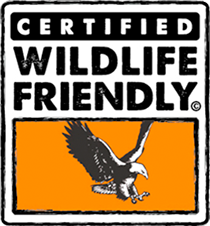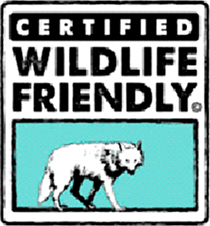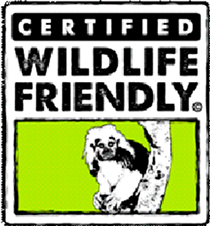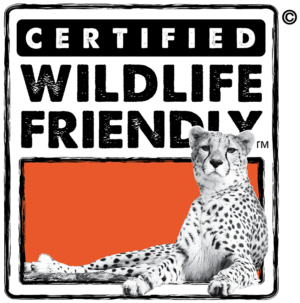Traders Hill Farm Becomes First Aquaponic Farm in Florida to Achieve Certified Wildlife Friendly® Status
Farm management practices emphasize coexistence with free-roaming wildlife including Florida panther and endangered gopher tortoises
FOR IMMEDIATE RELEASE
Hilliard, FL (March 23, 2016) Traders Hill Farm, a sustainable aquaponic farm whose products grow faster, taste better, last longer and waste nothing, has been recognized as North Florida’s first farm and the state of Florida’s first aquaponic farm to achieve the status of Certified Wildlife Friendly® from the Wildlife Friendly Enterprise Network (WFEN).

Aquaponic lettuces at Traders Hill Farm
Traders Hill Farm is committed to providing a place for wildlife while showcasing the power of aquaponics, which is a combination of aquaculture (raising aquatic animals such as fish) and hydroponics (growing plants in water without soil). At Traders Hill, farm-raised tilapia produce nutrient-rich water that becomes fertilizer for seedlings raised in floating grow-beds inside temperature-controlled greenhouses. As the seedlings consume the nutrients, they clean the water that is then returned to the fish tanks, thus completing the circle.
“We’re proud to represent a revolutionary idea in farming,” said Angela TenBroeck, founder and manager of Traders Hill Farm and a fourth-generation farmer. “By turning fish water into plant food, we deliver delicious, difficult-to-grow produce year-round in a greenhouse but require zero soil, pesticides or herbicides, and we use just 10% of the water of traditional farms.“

The farm’s production practices leave open space for wildlife from its setting near the Okefenokee National Wildlife Refuge
It is Angela’s efforts to coexist with wildlife through sustainable production practices that has earned her farm its certification from WFEN. As a recycler of North Florida’s abandoned farmland, Traders Hill Farm is located just below the Okefenokee National Wildlife Refuge, a 700 square mile wilderness area. On the farm, wild animals from endangered gopher tortoises to black bears and bobcats can “go for miles and never see humans” according to TenBroeck. A rare Florida panther has been tracked on the property.

Farm Manager Angela TenBroeck
A small flock of laying hens is protected by a portable chicken pen with secure fencing that houses two coops. The chickens are locked inside the coops at night to prevent predation. Cross-hatched by twine to keep the area’s eagles and hawks at bay, the pen is frequently moved to fresh grass. Traders Hill’s pasture raised hens are also Animal Welfare Approved.
The tilapia, which are given ample space and treated with “kindness and dignity” provide all the nutrients the produce needs, in combination with re-circulated rainwater. Fish waste and emulsions serve as additional income streams, purchased as fertilizer by local dairy farms.
This attention to detail transfers to care of the farm’s extensive wetlands and Cypress swamp along the St. Mary’s River. The farm has removed non-native species, planted more than 70,000 long-leaf pines, and continues to work to keep invasive vines at bay.
About Traders Hill Farm
Hilliard, Fla.-based Traders Hill Farm raises GMO-free salad greens, mustards, collards, kales, basils, Swiss chards, head lettuce, tomatoes, melons, eggs and tilapia using a revolutionary “no waste” aquaponic system to raise produce that grows faster, lasts longer and tastes better. Greens are available at Jacksonville restaurants and markets, including Southern Roots, Grassroots Natural Market, Native Sun Natural Foods and from the farm. For more information, see www.tradershillfarm.com.
About Wildlife Friendly Enterprise Network
The Wildlife Friendly Enterprise Network and its Certified Wildlife Friendly® and Predator Friendly® programs represent farmers, ranchers, artisans and conservation heroes from around the world. Participating farms in North America maintain and enhance wildlife habitats and employ a mix of careful observation and proactive practices to allow wildlife and livestock to coexist.
Certified Wildlife Friendly® products contribute to the conservation of over twelve million hectares of diverse wetlands, forests, and grasslands; protect keystone endangered species in North America, Europe, Africa, Asia and the Americas, including wolves, elephants, cheetahs, red pandas, and snow leopard, and benefit over 200,000 people through increased food security, income and employment. For more information visit: www.wildlifefriendly.org
Educational Ranch Conserves Natural Habitats while producing Sustainably-produced Foods
FOR IMMEDIATE RELEASE
Basalt, Co, FEBRUARY 11, 2016 Following a rigorous auditing process, Certified Wildlife Friendly® is pleased to recognize Aspen Center for Environmental Studies (ACES) at Rock Bottom Ranch for their work to prioritize habitat conservation alongside agricultural production and education. Rock Bottom Ranch (RBR), which is operated as a site of the environmental education non-profit, ACES, implements carefully orchestrated production systems that mimic natural biological cycles and allow adjacent ecosystems and wildlife to thrive. Located between the Crown of Mt. Sopris and the Roaring Fork River in Basalt, Colorado with Aspen’s iconic Maroon Bells-Snowmass Wilderness as a backdrop, RBR is the first farm in Colorado to meet Certified Wildlife Friendly® criteria for land and livestock management, with special focus on biodiversity and habitat conservation.
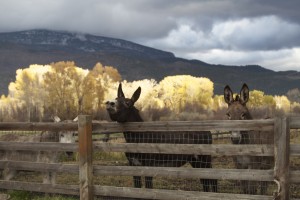
Burros enjoy the view at Rock Bottom Ranch Photo: Aspen Center for Environmental Studies
According to site Director Jason Smith, RBR’s operations seek to show how wildlife, natural landscapes, and domestic agriculture are both possible and healthy. “Agricultural production has a rich history in the American West and small farms and local food systems are gaining noticeable momentum,” says Smith. “The scalable and replicable sustainable production methods we use at RBR demonstrate the possibilities for productive local food systems in high-altitude climates like the Roaring Fork Valley, which are often located at the intersection between agricultural and wild lands.” Rock Bottom Ranch is taking it a step further to show how production systems and land management techniques can actually benefit natural habitats and area wildlife.
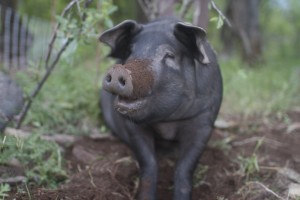
A Heritage Breed Pig at Rock Bottom Ranch Photo: Aspen Center for Environmental Studies
At Rock Bottom Ranch, Smith emphasizes care for the land as a primary responsibility: “The Ranch’s multi-species rotational grazing system promotes nutrient cycling that results in healthy, sustainable forage for our domestic livestock as well as our wild neighbors.” The system also saves on equipment, fuel, fertilizer, and labor costs, both in terms of agricultural production and habitat restoration. For example, RBR’s heritage breed pigs will occasionally assist with on-site restoration projects: under careful watch the pigs are allowed to root, or dig in the soil, a natural instinct that creates disturbance—like the fire and flood regimes of the past—in some of the Ranch’s mature cottonwood forests. The result has been the regeneration of stands of young trees, which are prime habitat for countless native wildlife species.
“Certified Wildlife Friendly®, is excited to welcome RBR to the Wildlife Friendly Enterprise Network,” says Executive Director Julie Stein. RBR’s methods benefit species such as mountain lion, black bear, bobcat, coyotes, elk, deer, and numerous birds of prey. Wetlands on-site also attract myriad migratory birds like the Yellow-headed Blackbird, as well as Great Blue Heron, White-faced Ibis, Trumpeter Swans and many other species. “Following the reviewed auditing process, which assesses criteria from careful stewardship of rangelands to proactive practices to protect livestock to habitat restoration, RBR joins peers around the world who implement best practices for biodiversity conservation and business.” RBR is the 10th farm the United States that holds Certified Wildlife Friendly® status.
For Smith, who “came to farming backwards” following an upbringing in restaurants and six years as chef at Aspen’s famed Little Nell, ACES at Rock Bottom Ranch is a laboratory in which sustainable agriculture and wildlife conservation go hand-in-hand. Smith says, “We’re honored that our efforts align with the Certified Wildlife Friendly® mission and look forward to seeing more farms in Colorado acknowledged for similar work.” In addition to its Wildlife Friendly® certification, ACES at Rock Bottom Ranch is certified for its high-welfare animal care by the Animal Welfare Approved program.
Certified Wildlife Friendly® looks forward to working with other farms in Colorado and throughout the American West towards a collaborative balance between wildlife conservation and agricultural production.
##
About Aspen Center for Environmental Studies and Rock Bottom Ranch
Aspen Center for Environmental Studies (ACES), a non-profit organization founded in 1968, provides programs in ecological literacy, sustainable agriculture, forest health, ecosystem restoration, and civic leadership for everyone from school children to leaders and decision makers. Partnership programs with 48 regional schools helps teachers meet state science standards while offering local children the opportunity to explore their outdoor environment. For more information about Aspen Center for Environmental Studies, visit: www.aspennature.org.
ACES at Rock Bottom Ranch (RBR), a 113 acre working ranch and educational farm, is one of four sites operated by the organization. RBR is western Colorado’s “school” for teaching people of all ages how to grow healthy local, sustainable food. In the winter months, RBR is open to the public Monday – Friday, with guided farm tours on Wednesdays and Fridays at 11AM. Other programs include Farm to Table dinners, cooking demonstrations, kids’ camps, and more. Sustainably-raised lamb, pork, poultry, eggs, produce, and cut flowers are available directly from the Ranch and at the weekly Aspen and Basalt farmer’s markets in season. To learn more about ACES at Rock Bottom Ranch and available products, contact Smith at jsmith@aspennature.org or 970-927-6760.
About Wildlife Friendly Enterprise Network
The Wildlife Friendly Enterprise Network and its Certified Wildlife Friendly® and Predator Friendly® programs represent farmers, ranchers, artisans and conservation heroes from around the world. Participating farms in North America maintain and enhance wildlife habitats and employ a mix of careful observation and proactive practices to allow wildlife and livestock to coexist.
Certified Wildlife Friendly® products contribute to the conservation of over twelve million hectares of diverse wetlands, forests, and grasslands; protect keystone endangered species in North America, Europe, Africa, Asia and Latin America, including wolves, elephants, cheetahs, red pandas, and snow leopards, and benefit over 200,000 people through increased food security, income and employment. For more information visit: www.wildlifefriendly.org
Contact:
Eliza Greenman Burlingame, Marketing Director
Aspen Center for Environmental Studies
Tel: 970.925.5756
Email: egreenman@aspennature.org



